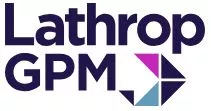Beginning on Jan. 1, 2024, businesses across all industries will need to file a Beneficial Ownership Information Report (BOI Report) with the U.S. Department of Treasury's Financial Crimes Enforcement Network (FinCEN). Enacted by Congress in 2021, the Corporate Transparency Act (CTA) requires private companies, who have historically kept the identity of their owners or those who control the organization private, to disclose this information to a national online database.
The CTA will usher in a new era of transparency and disclosure for legal entities operating within the U.S. Because so many food and beverage businesses are privately owned, the industry will be particularly impacted by this new reporting regime.
The purpose of the CTA is to combat financial crimes, money laundering, and corruption. The reality is that completely legitimate companies engaging in legal activities are required to file the BOI Report.
Who Needs to Report?
The CTA requires privately owned corporations, LLCs, partnerships, limited partnerships, and other legal entities formed by a filing with a Secretary of State, such as a general partnership (Reporting Companies), to disclose information about their beneficial owners and/or controlling members. Reporting is required for individuals who have "substantial control" over the company or own at least 25% of the entity. All reporting must occur through an online portal called BOSS (Beneficial Ownership Secure System).
What Information Needs to be Reported?
Reporting companies must disclose their legal name, any trade name or "dba" name, street address, state of formation, and Taxpayer Identification Number.
Each beneficial owner must report their full legal name, date of birth, business (or residential) address, and a scanned copy of either a passport or state driver's license. As ownership of the entity changes, the BOI Report must be updated, creating an ongoing CTA reporting requirement for the owners.
When to Report?
Companies formed after Jan. 1, 2024, must report the identities of their beneficial owners within 30 days of formation. Companies formed before Jan. 1, 2024, have until Jan. 1, 2025, to report their current beneficial owners. Any changes to the BOI Report after Jan. 1, 2025, must be reported within 30 days of the change.
Exemptions
While the CTA casts a wide net, there are certain exemptions in place. The CTA exempts 23 categories of entities from its definition of "reporting company," mostly due to these entities being subject to other federal regulations (e.g., banks, credit unions, insurance companies).
The exemption most applicable to the food industry would be "large operating companies," which are companies with over 20 full-time employees in the U.S., have an operating presence at a physical office in the U.S., and filed a federal income tax return for the prior year reporting more than $5 million in gross receipts or sales.
Reporting Violations
Compliance with the CTA is not optional; failure to comply with the reporting requirements can lead to substantial penalties. The CTA provides civil and criminal penalties for a person who either "willfully provides false or fraudulent beneficial ownership information to FinCEN" or "willfully fails to report complete or updated beneficial ownership information to FinCEN." The person may be subject to a civil penalty of up to $500 per day the violation continues or criminal penalty of up to $10,000 and up to two years of prison.
Food and Beverage M&A Transactions
The implications of the CTA are significant for the food and beverage industry. Food businesses should consult with their attorneys for initial reporting advice and review. Partnership or operating agreements should be amended to give the general partner or manager enough control to obtain required information from partners or members.
Food businesses acquiring other companies will also need to change their practices. As part of the due diligence process, potential buyers in M&A transactions should confirm whether the target entity is a Reporting Company and if so, whether it complies with the CTA reporting obligations or if it qualifies for an exemption. CTA compliance or exemption qualification should be included in the seller's representations and warranties section of the Purchase Agreement or disclosed in the disclosure schedules.
The CTA's imminent arrival brings a new level of accountability and transparency to the food and beverage industry. Amid the changing regulatory landscape, companies must adapt their practices and processes to ensure compliance.
The content of this article is intended to provide a general guide to the subject matter. Specialist advice should be sought about your specific circumstances.



